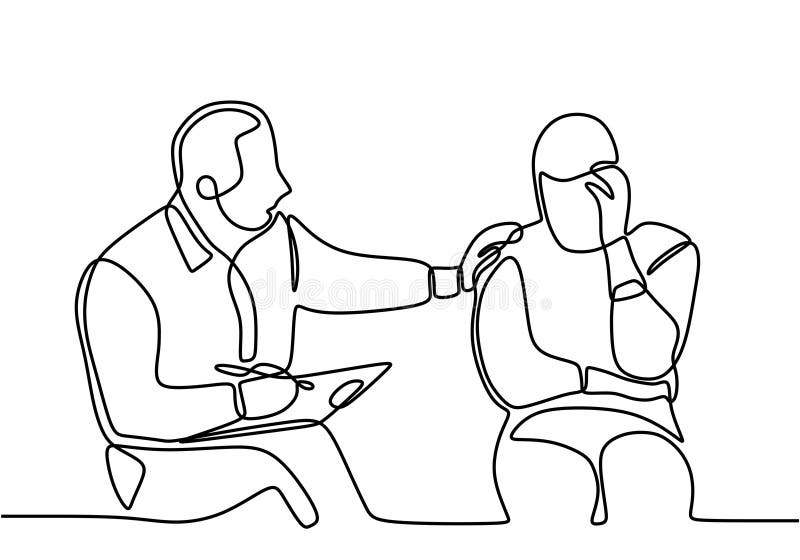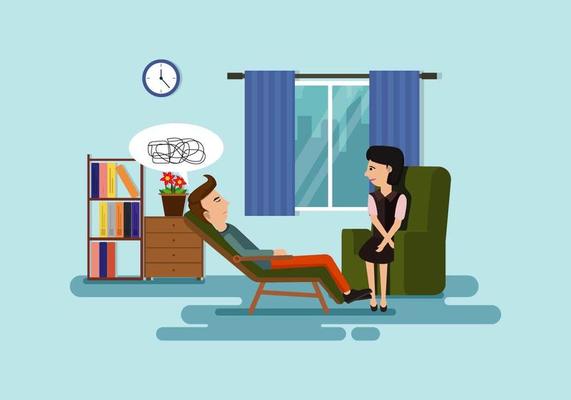Finding the Best Psychologist in Delhi: A Guide to Your Mental Wellness Journey
Finding the Best Psychologist in Delhi: A Guide to Your Mental Wellness Journey
Blog Article
The Role of Psych Treatment in Managing Anxiety and Anxiety
Psychiatric therapy has actually emerged as a keystone in the monitoring of anxiousness and clinical depression, offering tailored interventions that range from Cognitive-Behavioral Therapy (CBT) to mindfulness-based methods. These strategies not just aid people in recognizing and reorganizing negative thought patterns yet additionally foster present-moment understanding, lowering the tendency to ruminate. As we explore the numerous measurements of psychiatric therapy, it ends up being obvious that these techniques do even more than just relieve signs; they substantially boost psychological policy and social skills - Best Psychologist in Delhi. What remains to be examined is how these therapeutic techniques can be properly tailored to fulfill specific requirements, thereby enhancing their effect.
Comprehending Anxiety and Anxiety
Understanding stress and anxiety and clinical depression requires a thorough check out these widespread mental health and wellness problems, which typically exist together and considerably influence a person's every day life. Anxiousness is characterized by consistent, extreme fear and fear regarding day-to-day scenarios. Symptoms include restlessness, rapid heart price, and trouble concentrating. Alternatively, depression manifests as a pervasive feeling of unhappiness, vacuum, or hopelessness, frequently gone along with by a loss of passion in formerly appreciated tasks, modifications in hunger, and rest disruptions.
The conjunction of stress and anxiety and clinical depression can exacerbate symptoms and make complex diagnosis and treatment. Individuals suffering from both conditions might experience extra severe signs, better impairment in job-related and social functioning, and a longer duration of ailment. This comorbidity demands a nuanced understanding and method to therapy.
Neurobiological factors such as neurotransmitter imbalances, genetic predispositions, and environmental stressors add to the development and upkeep of these disorders. Furthermore, cognitive patterns like negative attitude and maladaptive habits can perpetuate these problems. Recognizing the detailed interplay of these variables is important for efficient treatment. Comprehensive analysis by psychological health and wellness specialists is vital to determine the visibility and level of these problems, leading the way for tailored healing methods.
Kinds of Psychiatric Therapy
Psychiatric therapy, also called talk therapy, includes a range of therapy methods developed to alleviate signs and symptoms of anxiousness and clinical depression by resolving the underlying mental and psychological problems. Various sorts of psychotherapy are tailored to fulfill the special requirements of people, supplying an array of strategies to psychological healthcare.
One commonly used form is psychodynamic treatment, which concentrates on understanding and dealing with unconscious disputes originating from early life experiences. By checking out these ingrained issues, clients get understanding into their existing habits and psychological state.
Social Therapy (IPT) is another efficient modality that focuses on improving social connections and function to reduce depressive signs. It commonly attends to concerns such as sorrow, duty transitions, and interpersonal disputes.
Humanistic treatments, such as Client-Centered Therapy, highlight personal growth and self-actualization. Best Psychologist in Delhi. These strategies produce a supportive environment where individuals can explore their sensations and develop a more powerful feeling of self
Last But Not Least, Dialectical Behavior Modification (DBT) incorporates cognitive-behavioral techniques with mindfulness practices. Initially developed for borderline character problem, DBT has actually been adapted to treat anxiety and depression by teaching skills in distress resistance, psychological policy, and interpersonal efficiency.
These diverse psychotherapeutic strategies supply numerous paths to psychological wellness and wellness, catering to therapeutic requirements and individual choices.
Cognitive-Behavioral Treatment (CBT)
Amongst the numerous psychotherapeutic modalities, Cognitive-Behavioral Treatment (CBT) stands out for its structured, goal-oriented technique in treating anxiety and depression. Created by Aaron T. Beck in the 1960s, CBT is based on the idea that maladaptive reasoning patterns add considerably to psychological distress and behavior problems. By recognizing and restructuring these adverse idea patterns, CBT intends to minimize symptoms and foster much healthier cognitive procedures.
CBT is commonly short-term, extending 12 to 20 sessions, and includes a collaborative effort between therapist and client. The therapy incorporates a selection of methods, consisting of cognitive restructuring, direct exposure therapy, and behavioral activation. Cognitive restructuring concentrates on challenging and changing distorted cognitions, while exposure therapy slowly acclimates patients to anxiety-provoking stimulations, lowering avoidance behaviors. Behavior activation seeks to enhance engagement in satisfying activities to combat depressive states.
Empirical evidence emphasizes the effectiveness of CBT, with numerous studies showing its efficiency in decreasing symptoms of anxiousness and anxiety. This healing technique has been adjusted for various populations and setups, showing adaptable and versatile. Its organized nature, empirical support, and concentrate on skill acquisition make CBT a keystone in the psychotherapeutic treatment of anxiety and anxiety.
Mindfulness-Based Methods
Mindfulness-Based Strategies have gathered substantial focus in the last few years as reliable interventions for stress and anxiety and clinical depression. Rooted in ancient reflection practices, these methods intend to cultivate an increased check it out awareness of the here and now minute, which can help individuals disengage from the ruminative idea patterns frequently related to stress and anxiety and depressive problems.

Likewise, Mindfulness-Based Cognitive Treatment discover here (MBCT) incorporates concepts from Cognitive-Behavioral Treatment (CBT) with mindfulness strategies. MBCT is especially efficient in protecting against relapse in people with recurrent clinical depression. By identifying early warning indicators of depressive episodes, people trained in MBCT can apply mindfulness methods to mitigate the start of full-on episodes.
Advantages of Psychiatric Therapy
Many research studies have actually shown the profound advantages of psychotherapy for people grappling with stress and anxiety and clinical depression. Psychotherapy outfits individuals with coping methods to take care of stressful emotions, consequently decreasing signs of stress and anxiety and clinical depression.
Additionally, psychotherapy supplies a structured setting for self-exploration and insight. By discussing their experiences and feelings with a skilled therapist, individuals can uncover underlying problems adding to their mental wellness struggles. This self-awareness is an essential action toward long-lasting recuperation and durability.
Another considerable advantage is the enhancement of social abilities. Stress and anxiety and clinical depression frequently stress partnerships, resulting in seclusion. Through restorative treatments, patients discover reliable interaction and conflict-resolution abilities, which can enhance their interactions and foster helpful connections.
In addition, psychiatric therapy supplies a customized strategy to treatment. Inevitably, the advantages of psychiatric therapy expand past signs and symptom alleviation, contributing to overall well-being and high quality of life.

Final Thought
Psychiatric therapy significantly adds to the administration of stress and anxiety and clinical depression by using reliable coping strategies and a safe setting for self-exploration. Methods such as Cognitive-Behavioral Treatment (CBT) and mindfulness-based techniques are crucial in recognizing and reorganizing adverse idea patterns, while promoting present-moment awareness. These tailored treatments not only minimize signs but also enhance click now emotional regulation and social abilities, consequently enhancing overall wellness and quality of life for individuals encountering these psychological health and wellness obstacles.
Psychotherapy has emerged as a keystone in the monitoring of anxiousness and depression, using tailored interventions that vary from Cognitive-Behavioral Therapy (CBT) to mindfulness-based methods.Comprehending anxiety and clinical depression requires a thorough appearance at these common mental health and wellness problems, which typically coexist and significantly influence an individual's day-to-day life.Amongst the different psychotherapeutic methods, Cognitive-Behavioral Therapy (CBT) stands out for its organized, goal-oriented approach in dealing with stress and anxiety and clinical depression.Various researches have demonstrated the profound advantages of psychotherapy for people grappling with anxiety and anxiety. Psychiatric therapy gears up people with coping approaches to manage stressful emotions, therefore decreasing signs and symptoms of anxiety and anxiety.
Report this page